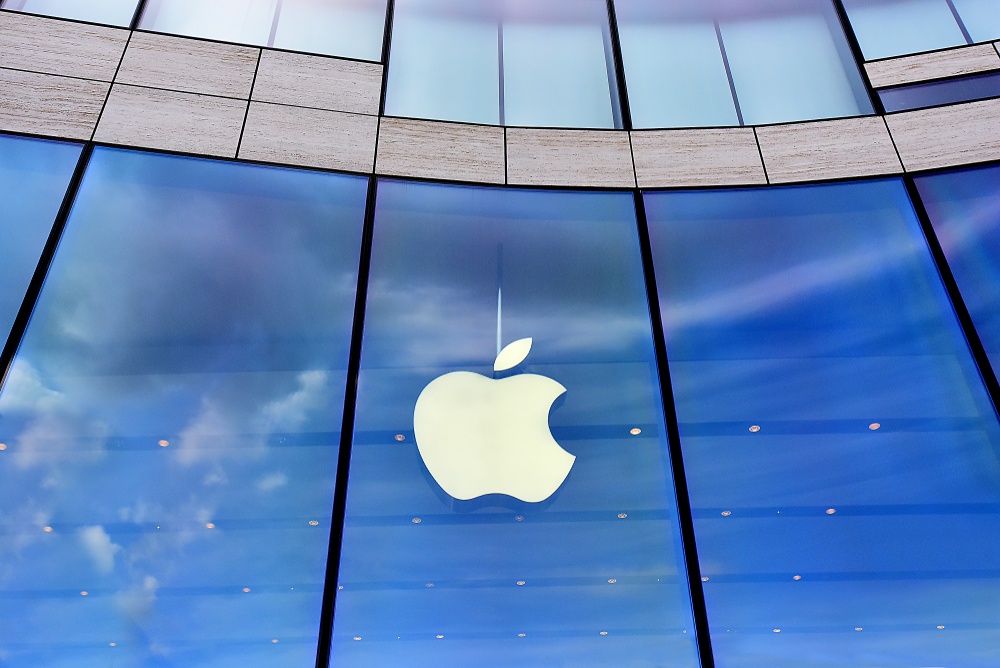Apple Finds a New Way to Sell its Old (Still Expensive) Phones in Germany; A Trial is Coming

Apple will resume selling older models of its iPhone with Qualcomm chips in Germany despite a legal dispute between the two. | Source: Shutterstock
Apple will resume its sale of iPhones in its stores in Germany, selling its older models which come with chips from Qualcomm Inc., as the chipmaker gets one over the Cupertino-based tech giant.
The world’s biggest supplier of mobile chips Qualcomm had brought a suit against Apple, where it claimed the smartphone maker was infringing on one of its patent that had to do with smartphone power management.
The Battle in Munich
A Munich court granted Qualcomm an injunction against Apple, banning the company from selling some iPhone models that used chips from rival chips maker Intel and parts supplier, Qorvo. According to the filing, Intel and Qorvo violated Qualcomm’s patent around envelope tracking, a feature that allows smartphones to save battery power while sending wireless signals.
Apple commented on the ruling:
Qualcomm’s campaign is a desperate attempt to distract from the real issues between our companies. Their tactics, in the courts and in their everyday business, are harming innovation and harming consumers. Qualcomm insists on charging exorbitant fees based on work they didn’t do, and they are being investigated by governments all around the world for their behavior. We are of course disappointed by this verdict, and we plan to appeal. All iPhone models remain available to customers through carriers and resellers in 4,300 locations across Germany.
Apple said it would appeal the ruling, while stating that the iPhone 7 and 8 models would not be sold in its retail stores but they will still be available through carriers and other third-party resellers in Germany.
Steven Rodgers, Intel’s general counsel, had explained in a blog post :
Qualcomm’s goal is not to vindicate its intellectual property rights, but rather to drive competition out of the market for premium modem chips, and to defend a business model that ultimately harms consumers.
Apple has now revealed that it will stop using chips from Intel in the production of iPhones to be sold in Germany. Apple had alleged that Qualcomm was engaged in illegal practices of patent licensing in a bid to protect its monopoly over modem chips.

In 2016, the smartphone maker started integrating Intel chips into its production after exclusively relying on Qualcomm’s. Last year’s iPhone models came with Intel chips, but Qualcomm is still the preferred supplier for older iPhones. Apple will now be using those for the iPhone 7 and 8 models heading into the German market.
Apple told Reuters:
Qualcomm is attempting to use injunctions against our products to try to get Apple to succumb to their extortionist demands.
The Legal Dispute that Spans Three Continents
Qualcomm’s win in Germany is the chip maker’s second major win against Apple, and the third case in a global effort to secure a ban on Apple’s iPhones over patent infringement.
In summary, the smartphone maker has argued that Qualcomm uses its ownership of basic patents to extort high fees and coerce them into buying chips. The chipmaker countered that Apple has infringed on its property by refusing to pay for technology the rest of the industry uses, values and pays for.
The dispute between the two companies has now spread to more than 50 different legal proceedings in three important markets, the U.S., China, and Germany.
In China, Qualcomm got an injunction banning Apple from selling iPhones, but the tech giant has found a way around the preliminary injunction by pushing a software update to Chinese iPhones . According to Apple, the patents in contention were used in an earlier version of iOS, but the more recent forms of the OS won’t be infringing on Qualcomm’s patents. This could explain the spate of software updates that were pushed out last December.
In the U.S., Qualcomm is suing Apple for stealing valuable trade secrets and sharing them with its rival, Intel , who now makes chips for Apple. Qualcomm’s claim was made in a Superior Court in San Diego, where it accuses Apple of breaking an agreement it signed with the chip maker when Apple became a customer of Qualcomm’s.
The chip maker has not supplied any evidence of the fact beyond purported discussions it discovered between Intel and Apple engineers during the course of the investigation.
Both companies will be back in court on April 15, 2019, where the patent suit goes to trial before a federal judge in the U.S.